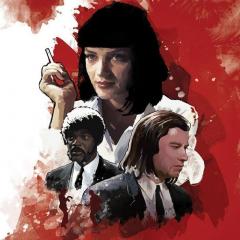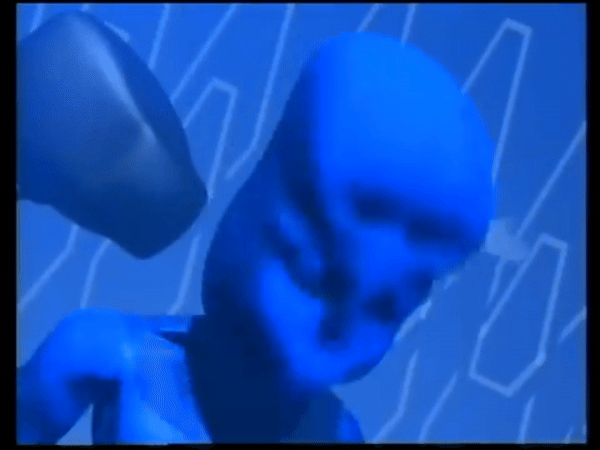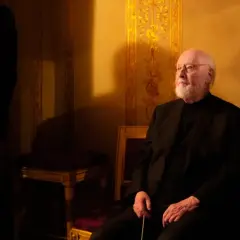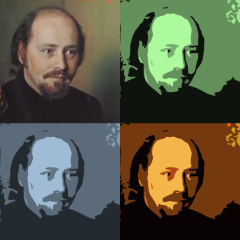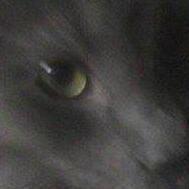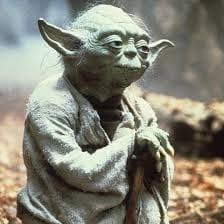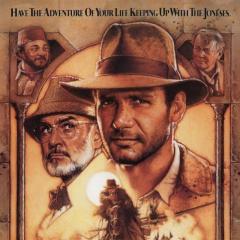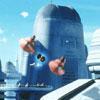Leaderboard
Popular Content
Showing content with the highest reputation since 01/08/24 in all areas
-
.thumb.png.99648892217b423e18fe027415380d39.png)
NEW! Dinosaur Expansion from Intrada September 17th, 2024!
Sunshine Reger and 20 others reacted to Brando for a topic
21 points -
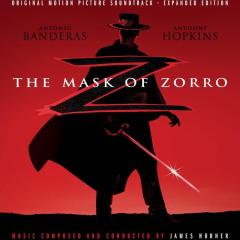
Steven Spielberg is Making a John Williams Documentary
Raiders of the SoundtrArk and 16 others reacted to DangerMotif for a topic
17 points -

John Williams is becoming a Disney Legend
ThePenitentMan1 and 16 others reacted to crumbs for a topic
Meh, I know it's trendy to hate on Disney (and lord knows Disney Records are doing everything in their power to trigger us) but can we not just appreciate a nice gesture for once? Disney (the studio) have bent over backwards for Williams since acquiring Lucasfilm. Not a dollar was spared giving him whatever he asked for on the Star Wars sequels (including recording in LA across 6-12 months, significantly more expensive than recording in London with the LSO). Then they gave him the same deal for Indy 5, plus extra commissions for spinoffs, TV shows and theme parks. How many other Hollywood studios have forked out money for two A-List composers on a single film (Williams and Powell), simply to 'make amends' with a composer (if the rumours about Rogue One are true)? So, credit where it's due. Kudos to Disney for recognising Williams on the big stage, he deserves all the accolades. Contrast this with the Oscars giving him the cold shoulder for 3 decades... you tell me what's more insulting.17 points -
This week when I opened my CD package at work after lunch, a colleague saw it and asked what they are, "haven't seen a CD in ages lol" and that kind of stuff. I started slow but then really swung into it and gave the poor guy a half hour crash course on complete and chrono, bad OSTs, rerecordings, rights bullshit, AFM bullshit, alternates, edits, session and sheet leaks... but to his credit he seemed fascinated enough (that's why I kept going), he said this is a hobby that never even crossed his mind could exist.13 points
-
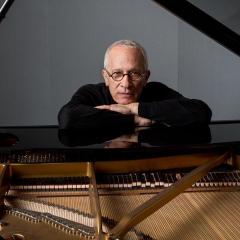
NEW! Dinosaur Expansion from Intrada September 17th, 2024!
Gabriel Bezerra and 10 others reacted to Edmilson for a topic
This is interesting. Disney clearly doesn't care enough about this movie to release it under their "Legacy Collection" (that is, considering they still will be doing more Legacy in the future) and has no problems licensing it to a specialty label. If this is true, then Intrada theoretically might be able to do other forgotten animated movies that Disney doesn't care like Atlantis, Treasure Planet, Brother Bear, The Emperor's New Groove, etc.11 points -

John Williams Reimagined Album (Arranged for flute, cello & piano)
Yavar Moradi and 10 others reacted to Jay for a topic
I finished my first listen a little while ago. I LOVED IT! This is a really good album! The great performance across all these compositions, from across decades of one composer's ouvre, really unify them to showcase just how versatile and prolific Williams has been. The arrangements felt carefully organized and placed, too. I found the whole thing had a nice flow. Like somehow opening with Princess Leia's Theme, going into Jane Eyre, then Memoirs of a Geisha just worked out beautifully as a fun opener! What I liked most was when about 2/3 of the way through the album, we got a bunch of Prisoner Azkaban music that aren't even concert arrangements John has published, just pieces from the OST album. And it sounded great! It really made me think that Williams should have published a big like 8-movement suite from this score with some of this stuff in it. Hagrid The Professor might be my favorite track on this thing! The Witches of Eastwick stuff at the end was super fun too. Heck, everything was fun. I really liked this whole album a lot! Maybe the only track that doesn't really need to be here is the Elegy concert piece. That one track maybe doesn't fit in with everything else as much. But overall, this is a real winner!11 points -
TL:DR - unrequested music recommendations from family members...! Not sure if this is the thread for this, but thought some of you might relate... I should preface this by saying that I have a great relationship with my parents (and family in general) and they have always been very encouraging of me as a musician, even if I don't really play or compose any more. Recently there was a family discussion about music, which included my 11 y/o niece (and younger nephew) who, perhaps inevitably, likes Taylor Swift and people like that. Perhaps not being able to help myself, I had to admit that I probably couldn't pick Taylor Swift out of a lineup and didn't know any of her songs. I try to avoid being the family's token cranky music snob (yet here we are...) and have rather accepted that my fanatical love of film and classical music is not something I'm going to pass on to any of my immediate relatives. Inevitably I made some passing comment about Taylor Swift being no Gustav Mahler (I know, I know...). Afterwards, my mother started telling me about various popular, middle of the road bands I should try, despite the fact that she knows that my interest in popular music is pretty limited (if it's not the Divine Comedy, Ben Folds, Rufus Wainwright or Randy Newman I'm not interested... not really true but I don't spend a lot of time exploring popular music) and that I have and endless supply of film and classical to explore. It occurred to me afterwards that my mother wouldn't think to suggest my sister check out some Beethoven or that my niece and nephew might like to try some of the film music Uncle Tom likes - at least they could connect with some of that if they've seen the films. It was a bit like that when I started getting into film music and playing it on the piano, it was always "why don't you try some Billy Mayerl..." (I wonder if I should try some of his stuff, maybe I'd like it now?!) rather than playing the film music I was absolutely obsessed with. Notwithstanding that my sister isn't that musical, there wasn't any pressure on her to stop listening to whatever 90s pop she liked when we were growing up. I appreciate that I could be a bit more receptive to these suggestions so I accept that I'm probably being somewhat intransigent. However, it's more the asymmetry in how I'm treated when it comes to music, coupled with the fact that I'm probably the only member of my family who actually has a very strong and defined musical taste. I don't really mind that nobody else shares my passion and they don't all go round humming JW or Sibelius or HTTYD or March to the Scaffold from the Symphonie fantastique, but it's a tiny bit irritating being told that I'm the one who should try listening to effing Mumford and Sons...10 points
-
Much more info here10 points
-
10 points
-
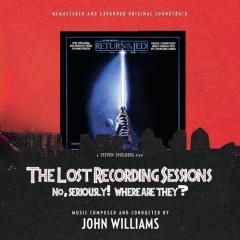
The Chronological Film Score Thread
Hego-Damask-II and 9 others reacted to Giftheck for a topic
STAR TREK PICARD - SEASON 3 (2023) Stephen Barton & Frederik Wiedmann EPISODE 1 Vol 1 Track 1 Beverly Crusher Vol 1 Track 2 Old Communicator Vol 2 Track 4 You Have To Go Vol 2 Track 5 Old Fashioned Road Trip Vol 1 Track 3 Hello, Beautiful Vol 1 Track 4 Leaving Spacedock Vol 2 Track 6 You Are A Warrior Vol 1 Track 5 I Like That Seven! Vol 2 Track 3 Missing The Chase Vol 2 Track 7 Son & Shrike EPISODE 2 Vol 2 Track 8 Basically A Saint Vol 2 Track 9 Legendary Admiral Vol 2 Track 10 Captain No Vol 1 Track 6 Breaking The Beam Vol 1 Track 7 The Shrike Vol 2 Track 11 Worf Splinters In Vol 1 Track 8 Picard's Answer EPISODE 3 Vol 2 Track 12 Titan On The Run Vol 2 Track 13 Commander Seven Vol 1 Track 9 Riker And Jack Vol 1 Track 10 Call me Number One Vol 2 Track 14 Jack Crushes It Vol 1 Track 11 No Win Scenario Vol 2 Track 15 The Relentless Shrike Vol 2 Track 16 Seventeen Seconds Vol 1 Track 12 Blood In The Water EPISODE 4 Vol 2 Track 17 Wolf 359 Vol 2 Track 18 What We Do Best Vol 1 Track 13 Let's Go Home Vol 1 Track 14 Flying Blind Vol 1 Track 15 A New Family Vol 2 Track 19 The Only Family I Need EPISODE 5 Vol 2 Track 2 Captain's Log (1:06-end) Vol 2 Track 2 Captain's Log (0:00-1:06) Vol 1 Track 16 Klingons Never Disappoint Vol 2 Track 20 Ro's Investigation Vol 1 Track 17 I Do See You EPISODE 6 Vol 2 Track 21 Worf Reunion, No Hugging Vol 2 Track 22 To Burgle Daystrom Vol 1 Track 18 Legacies (0:00-0:35) Vol 1 Track 20 La Forges (0:00-1:07) Vol 2 Track 23 The Marvelous Moriarty Vol 1 Track 18 Legacies (0:35-end) Vol 1 Track 19 Evolution Vol 1 Track 20 La Forges (1:07-end) Vol 2 Track 24 An Enterprising Titan Vol 1 Track 21 Invisible Rescue Vol 2 Track 25 Ol' Yellow Eyes Is Back EPISODE 7 Vol 2 Track 26 Impostor Voyager Vol 1 Track 22 Catch Me First Vol 1 Track 23 Proteus Vol 1 Track 24 Dominion Vol 2 Track 27 I Am Vadic EPISODE 8 Vol 2 Track 28 A Jackstral Projection Vol 1 Track 25 Lower The Partition Vol 1 Track 26 Get Off My Bridge Vol 2 Track 29 Finally Reunited Vol 1 Track 27 Family Reunion EPISODE 9 Vol 2 Track 30 The Son Of Locutus Vol 1 Track 28 Impossible Vol 1 Track 29 Frontier Day Vol 2 Track 31 Her Majesty Returns Vol 1 Track 30 Hail The Fleet Vol 2 Track 32 Futile Resistance Vol 1 Track 31 You Have The Conn Vol 1 Track 32 Make It So EPISODE 10 Vol 2 Track 1 Assimilated Delta Vol 1 Track 33 This Ends Tonight Vol 1 Track 34 Battle On The Bridge Vol 2 Track 33 An Honor Serving With You Vol 1 Track 35 All That's Left Vol 2 Track 34 Future's End Vol 1 Track 36 Annihilate Vol 1 Track 37 Trust Me Vol 1 Track 38 The Last Generation Vol 1 Track 39 Where It All Began Vol 1 Track 40 The Missing Part Of Me Vol 1 Track 41 Must Come To An End Vol 2 Track 36 Welcome To The Enterprise Vol 1 Track 42 A New Day Vol 2 Track 35 Captain Seven Vol 1 Track 43 Legacy And Future Vol 1 Track 44 Names Mean Everything Vol 1 Track 45 The Stars - End Credits Vol 2 Track 37 Star Trek Legacy Vol 2 Track 38 End Credits10 points -
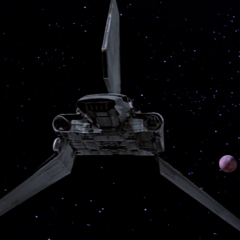
Bear McCreary's The Lord Of The Rings: The Rings of Power (2022)
Yavar Moradi and 8 others reacted to Tydirium for a topic
I guess I am a bit confused why we are still talking about Shore’s Middle-earth scores, when it comes to this series. As soon as we found out that this show wasn’t going to be in the Peter Jackson canon, I thought it was obvious that Shore’s themes would not be used. It just wouldn’t have made sense. And frankly, as much as I do like Shore’s main title music for the show, part of me wishes McCreary had done the main title music instead, to further unify the show’s sound world under him. Why should this show have a theme by a totally different composer, just because that composer happened to have written music for movies that aren’t even in the same canon? Shore already had his time in Middle-earth. The fact that he even got to write the main title music, is IMO more than anyone should have ever expected.9 points -

John Williams returning to Vienna for two concerts, December 7 and 8, 2024
geom_00 and 8 others reacted to bollemanneke for a topic
Oh well. He has to take care of himself at this point. Anything else is just completely unimportant. He's given us more than we could ever have hoped for.9 points -

HOOK Ultimate Edition - MUSIC Discussion
ChrisAfonso and 8 others reacted to Marc for a topic
Childhood being my favorite song from this score, I just couldn't resist playing it on my favorite isntrument9 points -
.thumb.jpg.c5f95f36bc39d508fb185d0cace6904d.jpg)
Recent Recording of John Williams's Concerto for Clarinet [and Orchestra] (1991)
BrotherSound and 7 others reacted to Jacob R. Ludwig for a topic
I have finally made a YouTube upload of John Williams's Concerto for Clarinet [and Orchestra] (1991) featuring clarinet soloist John Bruce Yeh and the Chicago College of Performing Arts (CCPA) Symphony Orchestra, Emanuele Andrizzi conducting. All of the information surrounding the recording can be found in the video description, but I also have it pasted below: Video description: John Bruce Yeh, longtime assistant principal clarinetist and E-flat clarinetist of the Chicago Symphony Orchestra, performs John Williams's Concerto for Clarinet and Orchestra with the Chicago College of Performing Arts (CCPA) Symphony Orchestra under the direction of Emanuele Andrizzi. The Midwest première occurred on Monday, 5 February 2024, at 7:30 pm (DST) at the Auditorium Theatre of Roosevelt University. Yeh's performance marks the concerto's first performance outside its original première with then-Los Angeles Philharmonic principal clarinetist Michele Zukovsky and the Riverside County Philharmonic, Williams conducting. The initial première occurred at 8 pm (EDT) on Saturday, 13 April, at the Riverside Municipal Auditorium. Richard S. Ginell, then Los Angeles Times chief music critic, gave a less-than-satisfactory review of the initial première, causing Williams to keep the work unpublished and unperformed until both Zukovsky and Yeh made a concerted effort to revive it. Ginell's original review can be found below: ______ Riverside—Somehow, the Riverside County Philharmonic found itself with a John Williams world premiere on its hands Saturday night in Municipal Auditorium. Not on that, the Boston Pops maestro was around to conduct his new work, a Concerto for Clarinet written for the much-admired principal clarinetist of the Los Angeles Philharmonic, Michele Zukovsky. For all the attention that this concert might bring Riverside, the work doesn't do much for Williams' own reputation. About 21 minutes long, the concerto rumbles and meanders about in a generic never-never land between tonality and dissonance. Whatever one may think of them, at least Williams' ubiquitous film scores have a distinctly grandiose personality and flair, whereas this faceless concerto seems to go out of its way to avoid its creator's imprint. The piece did give Zukovsky a good workout with its skittery, showy solo flights over the routine orchestral sheen—and she delivered the goods with agile strength and liquid tone. However, the Riverside orchestra's own contributions were compromised by truly wretched amplification. As bookends for his concerto, Williams hauled out two of his infinitely memorable crowd-pleasers, the March from "Raiders of the Lost Ark" and "Adventures on Earth" from "E.T.," which the orchestra executed with overall cohesion despite some very rough edges. After intermission, the orchestra's music director, Patrick Flynn, too over the baton with a Dvořák "New World" Symphony that settled in vigorously after some misshapen wallowing in the first movement. Ginell, Richard S. "John Williams Unveils Premiere in Riverside." Los Angeles Times, Monday, 15 April 1991, p. 63. https://www.newspapers.com/image/175909221. ______ CCPA Symphony Orchestra. “CCPA Symphony Orchestra - February 5, 2024.” Conducted by Emanuele Andrizzi. Percussion Soloists: Ed Harrison and Vadim Karpinos. Clarinet Soloist: John Bruce Yeh. Recorded and streamed live from the Auditorium Theatre of Roosevelt University, Chicago, IL. February 5, 2024. Accessed August 25, 2024. https://www.youtube.com/live/Z2NaXuPU2Zk. The audio is an excerpt from the original concert live stream. Photo by Chad Batka / NYT / Redux, found in Ross, Alex. "The Force Is Still Strong with John Williams." The New Yorker. August 19, 2024. https://www.newyorker.com/culture/persons-of-interest/the-force-is-still-strong-with-john-williams.8 points -
My ultimate dream is that something like this would leak for ANY of his scores8 points
-
Douglass Fake from Intrada has passed away
johnmillions and 7 others reacted to Marian Schedenig for a topic
Douglass Fake (1952 - 2024), A Personal Reflection by Intrada's Shipping Manager8 points -

THE ACOLYTE - 2024 Star Wars TV
greenturnedblue and 7 others reacted to Mattris for a topic
The cost of two seasons, filmed back-to-back. As I've been saying for some time, Star Wars has a great many surprises in store...8 points -

THE ACOLYTE - 2024 Star Wars TV
greenturnedblue and 7 others reacted to Nick1Ø66 for a topic
I don't find it annoying, I find it completely justified. If you want to give her the credit for Andor, well, fine. Then in that case she deserves the blame for all the disasters that have come along with that. Hmmmm. Let's see. Disney Lucasfilm peaked with TFA. Each film in the main saga since made less money than the last. TLJ deeply split the fan base and no one was satisfied with TROS. And while Rogue One performed decently, Solo and Dial of Destiny were outright flops. There hasn’t been any Star Wars on the big screen, where it belongs, since 2019. And what’s the future? "Episode X" (i.e. Rey Returns) being directed by a political activist and documentary filmmaker who with exactly zero experience helming a project remotely this big. And a bunch of announced films that, like the Rey film, may or may not happen at all. On TV, Book of Boba Fett and the much-anticipated Kenobi series pleased no one and were DOA. Ahsoka (like The Acolyte) haemorrhaged viewers as the season went on. Willow flopped and was cancelled after one season, then unceremoniously yanked from Disney+ altogether. Yes, yes, Andor was well regarded critically but reportedly the lowest rated of the SW shows. In fact the only outright success, both in terms of ratings and critical reception, was The Mandalorian…and even then, only the first and maybe second season. The result of Star Wars on TV has been a sludge of generic mediocrity. Hardly the stuff of a Game of Thrones level cultural phenomenon that you’d expect from a franchise like Star Wars. And all that’s to say nothing of all the cancelled projects & fired directors. Disney isn't close to recouping the money the spent for LucasFilm. How is any of this an even remotely defensible record? Look, Kathy Kennedy is a Hollywood legend. She's undoubtedly one of the most successful producers in history, her record speaks for itself. And she deserves every bit of credit for what she's done. She's excelled at giving creatives what they need to excel. That's what a good producer does. But being a producer is a very different job than the one she has now. And frankly, she lacks the grand vision to lead something as sprawling as Star Wars. There's no cohesion or unified theme behind what's going on with the franchise. It's all disjointed and scattershot, all over the place in terms of story. Add to that the graveyard of abandoned projects, and Star Wars has paid the price for her lack of vision. No...no, I don't think that's fair. Certainly, I agree that some of the "ire" is politically charged, but I think saying most of it comes from that place is a bit of a stretch. Of course there are plenty of sexist trolls out there who are going to hate her no matter what, just as there are people who are going to reflexively defend her no matter what because they question the motives of those questioning her. But if the "content" she was putting out was better, I don't think most people would care about all that. In any event, The Acolyte was cancelled, not because of trolls, but because people didn't watch.8 points -
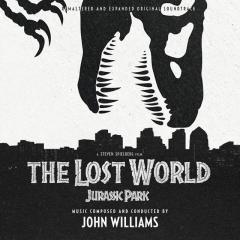
Walt Disney Records The Legacy Collection
Yavar Moradi and 7 others reacted to Luke Skywalker for a topic
We need hercules to complete menkens golden age…8 points -

The Official La-La Land Records Thread
bollemanneke and 7 others reacted to The Great Gonzales for a topic
That image of Kirk is everybody that doesn't care about Trek looking at this set haha.8 points -
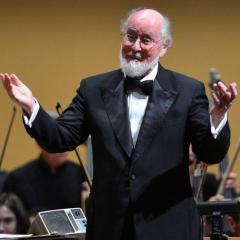
Anakin's Theme (2023 Revision)
GerateWohl and 7 others reacted to Falstaft for a topic
In case anyone is curious, an article I've written on Anakin's Theme, with a focus on the concert arrangement(s), is now up on The Legacy of John Williams page. Thanks to @TownerFan for the chance to share this work as part of his Prequel Scores at 25 Years Retrospective! Anakin’s Theme and the Musical Aftermath of The Phantom Menace: (https://thelegacyofjohnwilliams.com/2024/07/30/anakins-theme-essay/) I threw in some easter-eggs for old-school Williams fandom -- JWfan old-timers will hopefully appreciate the refernces to what the online community was up to back in 1999! Be sure to check out some of the hyperlinks. Archive.org is a miracle!8 points -

THE EIGER SANCTION (1975) - 2021 2-CD Expanded Edition from Intrada Records
ThePenitentMan1 and 6 others reacted to GerateWohl for a topic
Easy. Why would Jaws listen to "The Eiger Sanction" at all?7 points -
I mainly just want as many stories and clips of him behind the scenes as I can get. I don't need to be convinced of how good his music is by playing tons of clips from the movies, or especially by his friends reiterating his genius without ever really putting their finger on it. I've seen the movies, I've heard the music, JW is great. I just wanna know more about what he's like in action.7 points
-
I doubt that there will be anything new for us fanatics, however, a high-production-value documentary edited by Spielberg himself is a great gift to us all. I could not be happier. I hope Williams is able to attend the premiere.7 points
-
WOW! I am listening to the Season 2 OST album and LOVING IT. What I was most stricken by was that I didn't revisit season 1 music at all leading up to this; I probably haven't listened to any of it since some time in 2023. And yet as all the various season 1 themes would pop up throughout this album I realized just how ingrained into my psyche they are from listening to and enjoying the season 1 score so much when it came out. A nice accomplishment! I don't even know what specific comments I have, other than just generally loving everything I'm hearing here (except for the Damrod track). Boy, is it going to be fun getting new episode albums over the next 8 weeks. Er, 5 weeks, since they are foolishly dropping 3 episodes (and presumably episode albums) at once next week. The theme is that track is not a theme for Sauron, it's a theme for The Rings themselves. Sauron has his own, separate theme (that has a concert arrangement just called "Sauron") My google doc is actually a good refresher on what the 18 themes that made up season 1 are, on the first tab: https://docs.google.com/spreadsheets/d/1iPZSq84CsDwNeyokPVDh4adCyagChXIEW9X_-sYu5sc/ I'll be updating it as the season goes on and we know for sure what the new season 2 themes are and what they represent. I've actually already added a season 2 tab and I'm jotting down which themes I hear in each of these tracks. If anyone sees that I missed any let me know7 points
-
here you can see some merch sold at Hollywood Bowl and for The Disney Concert Hall. 2022 & 2023 same artist (Dave Kloc), 90th anniversary (addnoisstudios, still available at LAPhil store. They don't ship overseas, you'll need a third party -freight carrier- or friend living in th States). The rest of the merch is hard to find, but some are still available from the artist himself at https://kiiarens.com/search?q=John+williams7 points
-
John Williams Reimagined Album (Arranged for flute, cello & piano)
JW collector and 6 others reacted to Arnaud59 for a topic
7 points -
Good grief. 200 million dollars up in smoke for a lacklustre show with lacklustre ratings. Failure after failure after failure. A bitterly divided & disillusioned fan base. A franchise rudderless and adrift, and every ounce of magic in Star Wars just...gone. How has everyone in leadership at Lucasfilm not been fired & replaced?7 points
-
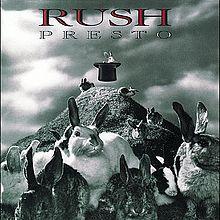
John Williams Caption Competition!
Martinland and 6 others reacted to Naïve Old Fart for a topic
Now, young Zimmer... you will die.7 points -
I'm just going to say it... I think the Lucius Malfoy and AOTC chase adaptation in Quidditch is better than the AOTC versions. I'm sorry. I think there's more done with the Lucius version rather than repeating the same melody and orchestration 20 times like in the Dooku version, and there's more flair with the Quidditch version of the AOTC chase.7 points
-
7 points
-

John Williams is becoming a Disney Legend
Martinland and 6 others reacted to Naïve Old Fart for a topic
An empty, meaningless, worthless, crass, insulting spectacle... like most of The Mouse's output, these days.7 points -
This post may be a little late, but I have recently returned from my small trip around the US. Eventually, I attended the concert and I am so glad I did. It was my first time at the Hollywood Bowl and a night I will forever remember. I feel that the programme was perfectly balanced both in terms of Maestro's themes and the ones of other composers. Also, seeing so many people co-conduct some pieces with their lightsabers (and being one of the fellow Jedi) was a wonderful experience. I even managed to 'smuggle' the lightsabers back to Poland. The entire concert was great, but I particularly enjoyed the Seven Years in Tibet theme, as I had never heard it performed live before. A beautiful evening.7 points
-

Images (1972) - 2021 remaster by Quartet Records (CD and LP)
Once and 6 others reacted to Naïve Old Fart for a topic
IMAGES is fucking brilliant! End of.7 points -
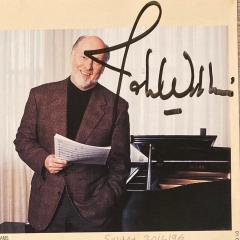
PLANET OF THE APES - Film Series 5CD box set from La-La Land Records (2019)
Marian Schedenig and 5 others reacted to QuartalHarmony for a topic
6 points -
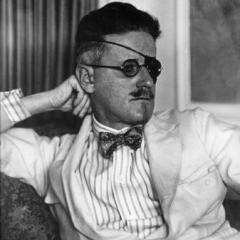
Bear McCreary's The Lord Of The Rings: The Rings of Power (2022)
jpmatlack and 5 others reacted to TheUlyssesian for a topic
Honestly, this is a bizzare post. You acknowledge that literally legally under threat of skull crushing financial liability and reputational and brand damage and utter financial and profession ruin, Amazon had absolutely no chance in hell, not even the barest possibility of using Shore's Jackson music for their series. Yet you find fault with Amazon? I don't understand. It's like saying, this man would have 100% drowned and killed himself had he swum to the bottom of the ocean to retrieve the penny i dropped and i absolutely hate him that he didn't get me the penny and he's a terrible person.6 points -
.thumb.jpg.75d0bef92fd5d333326cad21f3788748.jpg)
Harry Potter 7CD Collection - MUSIC discussion
Yavar Moradi and 5 others reacted to bored for a topic
To be fair, the second film is also practically a one-to-one recreation of the book minus a Death Day party or two. So if you think the movie's uninspired you might have to point to the book for that. I actually think it's one of the best Harry Potter movies. I think the acting from the trio is better than most of the later movies, the movie aesthetically is just beautiful, gorgeous sets (not all of them recycled), puppets, coloring, greatly improved CGI, all of the music, re-used or not is great. It's also a more interesting mystery to me as there's practically no mention of Voldemort so the reveal is genuinely surprising in comparison to most of the other movies (obviously with the exception of Prisoner), where Voldemort is constantly mentioned and it's somehow a surprise that he's behind it, with the only real surprise being who works for him. Chamber of Secrets to me is like what Half-Blood Prince wishes it could be. Some more fun school stuff and levity balanced out with a darker, more dire tone. The difference is there's effort put into the filmmaking and they didn't just resort to making the film coloring ugly as sin to let you know the film is dark in tone too.6 points -
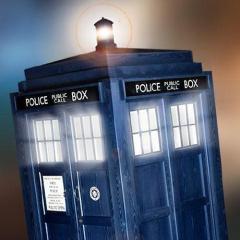
enderdrag64's Star Wars Cue by Cue
ThePenitentMan1 and 5 others reacted to enderdrag64 for a topic
#1.25 SW (1977) - 7m2N The Hatch Opens (Wook link)6 points -

Harry Potter 7CD Collection - MUSIC discussion
Brando and 5 others reacted to The Great Gonzales for a topic
Introducing: The film score police!6 points -
The End Titles suite from Attack of the Clones (the OST version, not that hack job that ended up in the final movie) is perhaps my favorite Star Wars end titles ever. Especially the ending part from 9:00 onwards when we get the Across the Stars theme on harpsichord and then a dark ending bridging Anakin's Theme from TPM to the Imperial March.6 points
-

Harry Potter 7CD Collection - MUSIC discussion
enderdrag64 and 5 others reacted to A. A. Ron for a topic
It's ridiculous that it's been six years and none of the sequels have been expanded.6 points -
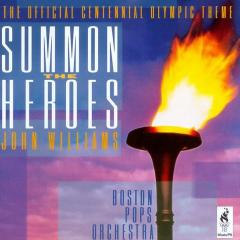
John Williams In Tokyo - New live concert album coming May 3rd, 2024 from Deutsche Grammophon
GerateWohl and 5 others reacted to Matt S. for a topic
That’s where I scroll through JWFan6 points -
6 points
-
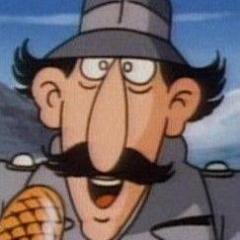
HOUSE OF THE DRAGON
Mr. Who and 5 others reacted to Docteur Qui for a topic
I thought that was a solid season. Very clearly not what the writers had intended in its entirety, but I thought they did a good job considering. I'd much rather a slower pace with fluff scenes than the hyper-speed and illogical pace of latter GOT. Highlights were definitely Rook's Rest and the two Allicent/Rhaenyra conversations. Regarding the latter, I've seen some truly bizarre criticism that the show is spending too much time on their relationship. Their relationship is the show. Given that the source material is a series of facts and rumours presented by multiple unreliable narrators, of course they needed to ground the show in a real human relationship, and I'm glad that's the one they chose. You don't cast powerhouses like Emma D'Arcy and Olivia Cooke and not have them play off one another. I may be in the minority but I really liked Daemon's Harrenhall ayahuasca sabbatical. Add in the pure delight of Ser Simon Strong and Alys Rivers and you've got a great cocktail of scenes and characters playing off one another. This is an example of a pace of writing that needed to be exactly as long as it was; any shorter and Daemon's kneel at the end of the season would've fallen as flat as King Bran. What the season lacked in many areas (and it did lack, don't get me wrong), I was completely sold on the work they did depicting the self-reflection of Daemon, Allicent, Rahenyra and Criston. In fact I think the greatest achievement the show made was making me empathise with Criston Cole, arguably one of the most despicable main characters since Joffrey. It was also more than welcome to see Rhaenyra's religious fervour/god-complex begin to flourish. Her expressions while presiding over the Red Sowing were disturbing, and it makes perfect sense for the character. Ending the season flipping the devoutness and impulsivity of Rhenyra and Allicent was very smart. I just wish we got to see the battles they'd very clearly planned to depict. Oh and I really liked Djawadi's work this season. He continues to mature as a composer and the Classical flourishes in the music this season were very on point. I also really like the new theme he introduced (featured heavily in Rook's Rest and the finale montage). It's been stuck in my head for days.6 points -

The Official La-La Land Records Thread
Manakin Skywalker and 5 others reacted to A. A. Ron for a topic
No, just a flawless AI that removes music from SFX.6 points -

JAWS Is Better Than Everything
Yavar Moradi and 5 others reacted to Mr. Hooper for a topic
The end credits are so relaxing with Williams' music, and they're relatively short. It's a moment to breathe easy after all that drama. At recent theatrical showings I've been to, most people stay till they're done.6 points

